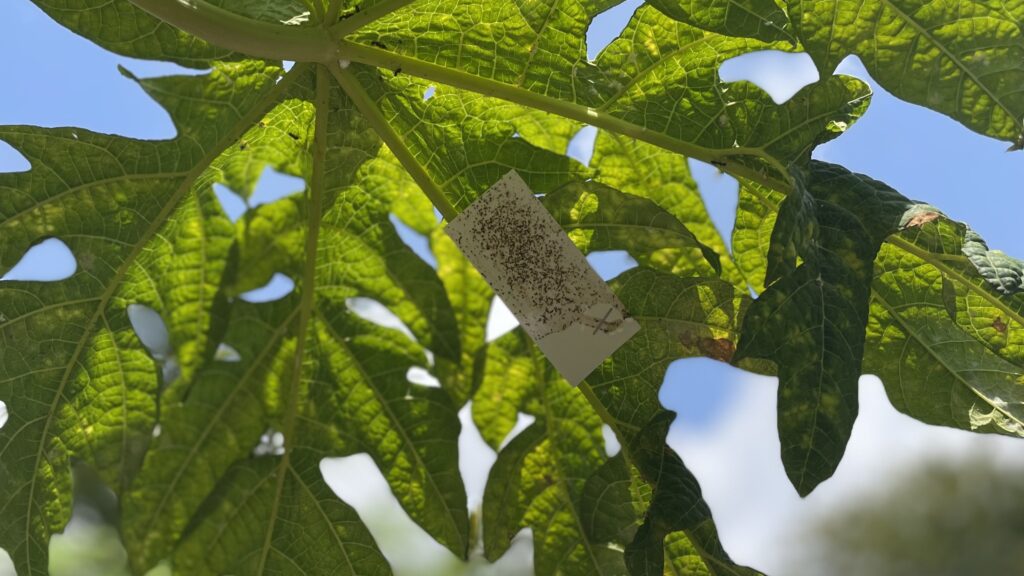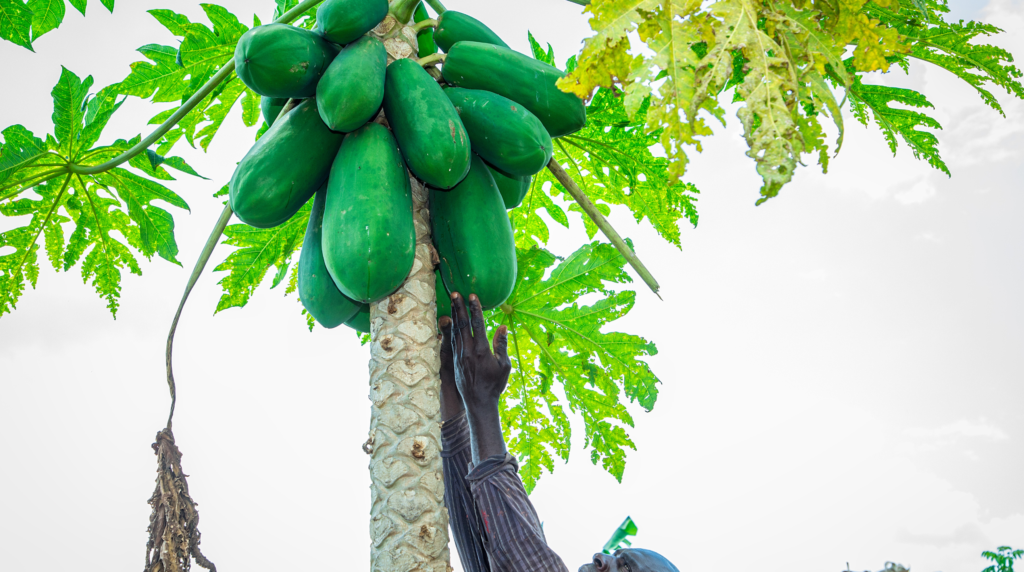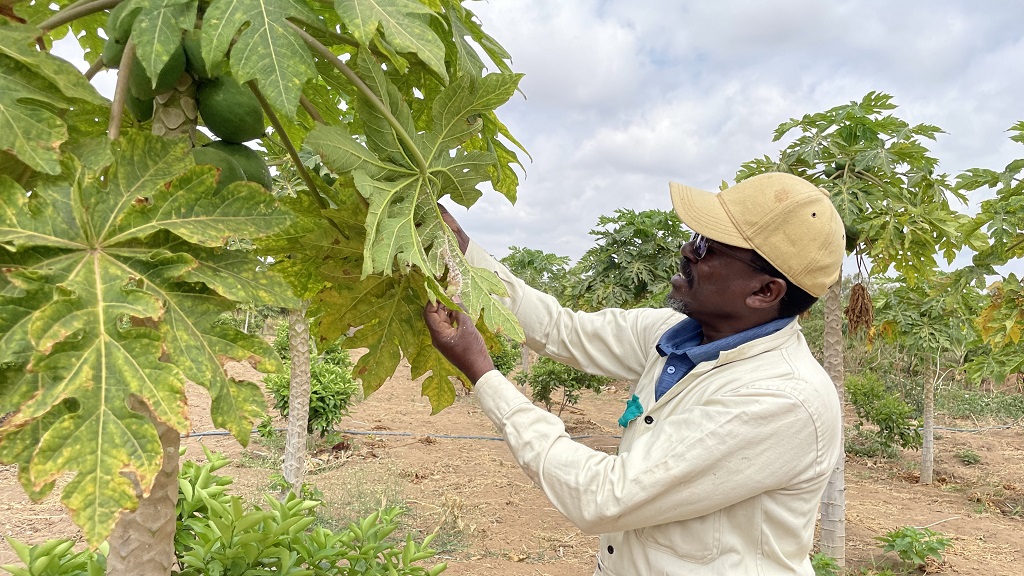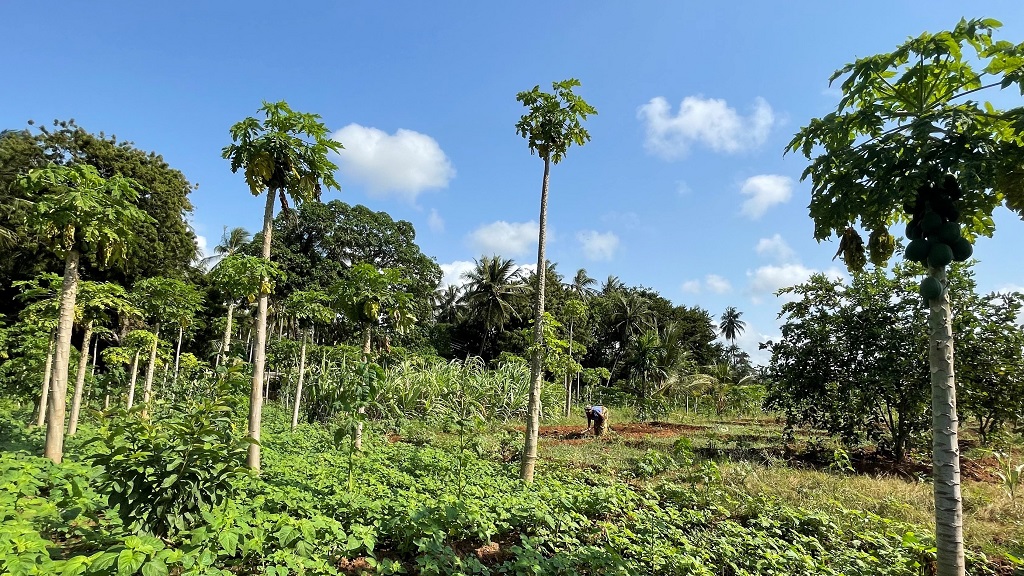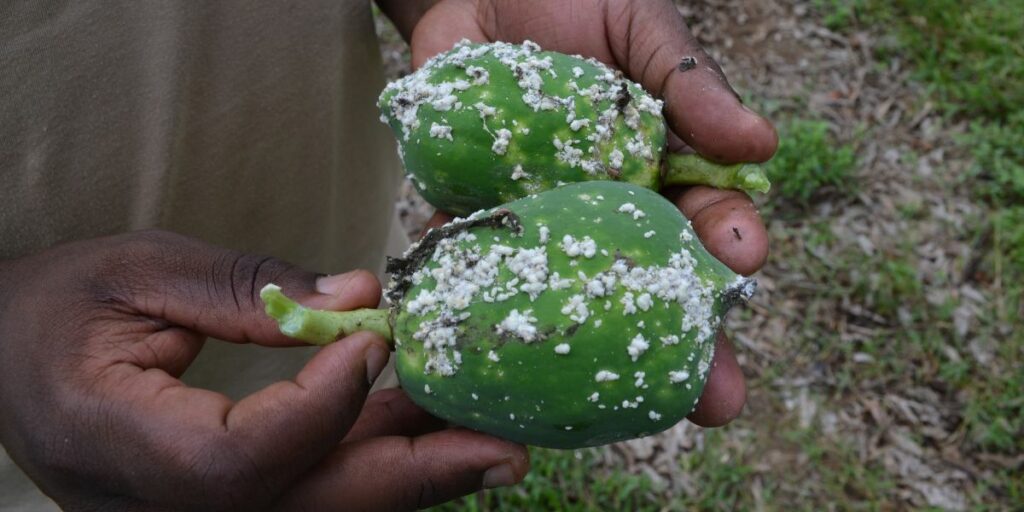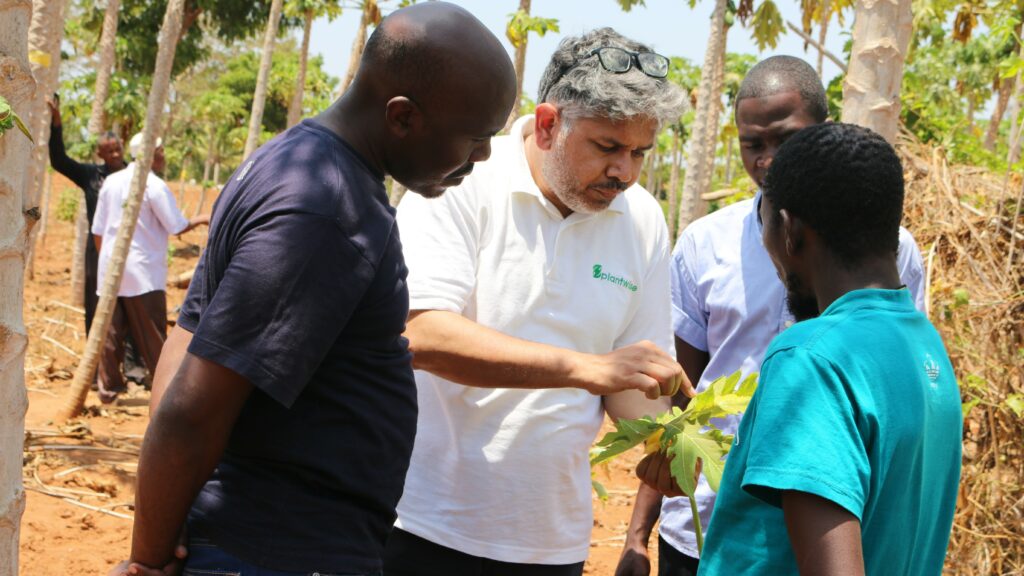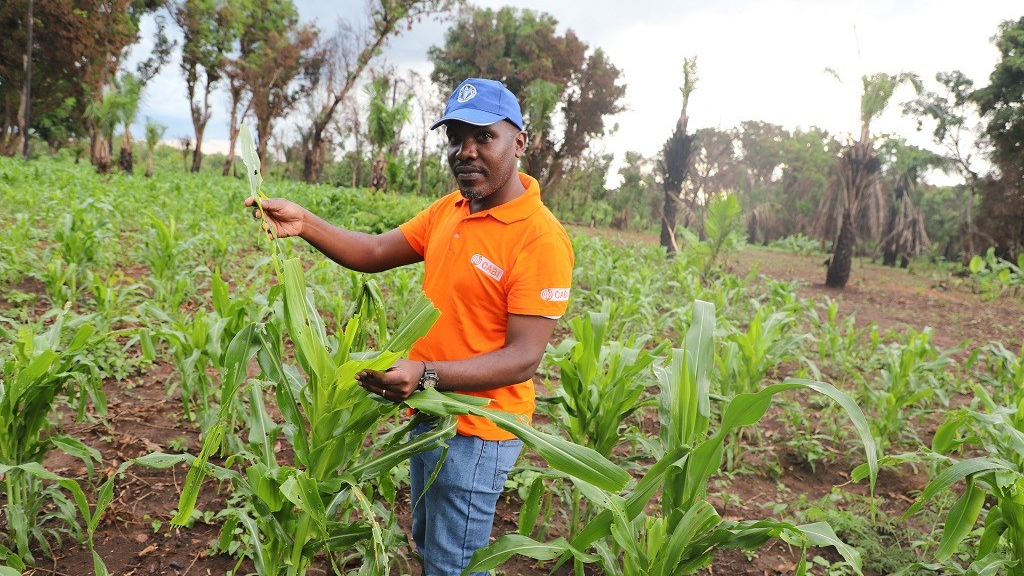Parasitic wasps play pivotal role in Kenya’s papaya mealybug control
Papaya mealybug (Paracoccus marginatus) is a devastating papaya pest. It impacts many countries in East and West Africa. Infestations can result in significant economic losses, posing a threat to the livelihoods of smallholder farmers. On average, the pest can cause anywhere from 53% to 100% crop losses, costing £2,224 per hectare annually. Its impact on…
How a tiny wasp can save the livelihoods of papaya farmers
“We have a problem with the attack of mealybugs, which are becoming a menace to the production of papayas. I fight them, but they are also fighting back.” Ben is a farmer in Machakos County, Kenya, east of the nation’s capital, Nairobi.
Controlling the papaya mealybug pest – progress made in coastal Kenya
An initiative to combat the destructive papaya mealybug in Kenya is reaping rewards. A natural predator – a parasitic wasp – has been introduced to coastal counties to help control the pest. This tiny wasp is helping to prevent the damage caused by the mealybug. It’s not only helping to save papaya farms. It’s safeguarding…
Could biocontrol solve the papaya mealybug problem for Ugandan farmers?
Papaya mealybug, Paraccous margniatus, is native to Central America but has spread rapidly in invaded countries. It was detected in Uganda in 2021 where it has the potential to affect the production and quality of papaya and other host crops.
Mass rearing training strengthens papaya mealybug biocontrol programme in Kenya
PlantwisePlus has been working in collaboration with partners in Kenya to implement a classical biological control strategy to manage papaya mealybug (Paracoccus marginatus). The invasive pest has been devastating papaya crops in Kenya. A CABI study in 2019 found it caused an estimated 57% yield losses across five counties.
PlantwisePlus: detecting and responding to plant health threats
Invasive species specialist Dr Ivan Rwomushana is one of the Global Team Leaders for CABI’s new global PlantwisePlus programme. His role within the programme is to strengthen decision support systems for the detection and response to pest outbreaks and plant health threats.
Pakistan’s papaya pest squashed through biocontrol
By Saleem Shaikh. Reblogged from SciDev.Net A severe infestation of the papaya mealybug (Paracoccus marginatus) nearly wiped out papaya orchards in Pakistan before the largely farmed country decided to replace conventional chemical pesticides that were ineffective with natural predators that proved to be successful. The system was developed by agro-biotechnologists and entomologists at the Pakistani chapter…

